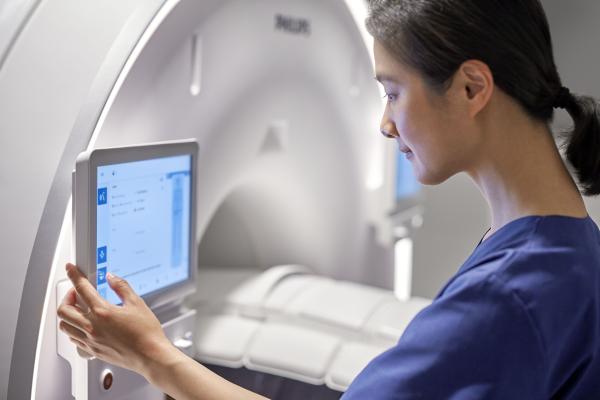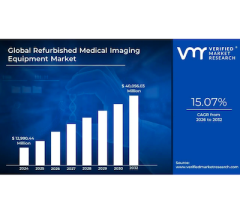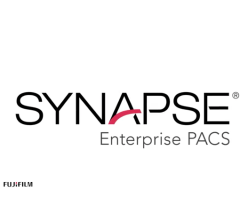
A comprehensive radiology department lifecycle assessment showed potential to reduce carbon footprint by 20% and total cost of ownership by 20% according to findings issued by Royal Philips and Vanderbilt University Medical Center during RSNA 2023. Image courtesy: Philips
December 7, 2023 — Royal Philips, a global leader in health technology, and Vanderbilt University Medical Center (VUMC), home to the top-ranked adult and pediatric hospitals in the Southeastern U.S., announced initial results of a research collaboration to decarbonize the health system’s radiology department. The project, which was initially announced in March 2023, shows that sustainable initiatives can reduce carbon footprint by nearly 20%, and reduce ownership costs by nearly 20%, while also allowing for improved patient care.
Philips and Vanderbilt assessed 13 diagnostic imaging devices including MR, CT, ultrasound and X-ray, which account for an estimated 12,000 patient scans per month, and found that they emit the CO₂ equivalent of 1,000 gas cars driven for one year. In addition, the energy use of scanners accounted for more than half of the total emissions released from diagnostic radiology. Other generators of carbon emissions within the department included the use of medical disposables, PACS (picture archiving and communication system) and linen production and laundry.
The assessment showed that both technology and healthcare practitioners play a significant role in reducing overall greenhouse gas emissions. For example, conducting consecutive patient scans and powering down equipment is a more sustainable approach compared to continuous scanning with equipment left operational overnight. Improving scanning efficiency with technology including those that are AI-enabled, conserves energy while reducing unnecessary scan repetition. Moreover, circular business models, starting with green procurement, and including software and services upgrades and refurbished/leased equipment, can reduce cost of ownership by almost one third while reducing waste.
“Human health is closely connected to the health of the environment, and we need to take care of both, which is why we feel a great sense of urgency to address our carbon emissions and develop a more sustainable and healthier path forward,” said Diana Carver, PhD, Assistant Professor of Radiology & Radiological Sciences, Vanderbilt University Medical Center. “Our collaboration is leveraging our team’s collective knowledge and expertise to reveal key learnings that will direct our efforts to cut emissions.”
Along with implementing a set of prioritized interventions defined by Philips and VUMC that will support the carbon footprint reduction of the radiology department, the two organizations intend to share their findings in a scientific publication, with the objective of facilitating knowledge sharing and enabling further improvement of environmental strategies throughout the healthcare industry.
“It is imperative that healthcare acts quickly, collectively, and globally to mitigate climate impact. This study challenges conventional thinking that sustainability increases costs when it in fact does just the opposite. Energy-efficient, circular, digital and cloud-based technologies can help address climate change and this research shows that individual behavioral changes can also play an important role in speeding up global efforts towards decarbonization,” said Jeff DiLullo, Chief Region Leader, Philips North America. “Our teams continue to work closely to define an approach and model that VUMC can leverage, anticipating results of this research will inspire others to take action.”
The results were released by Philips in a news release issued during the Radiological Society of North America Scientific Session and Annual Assembly, RSNA 2023, held Nov. 26-30 in Chicago, IL. The issue of sustainability was in the spotlight throughout several sessions and special events which Imaging Technology News will continue to follow and feature.
For more information: www.philips.com


 February 04, 2026
February 04, 2026 









